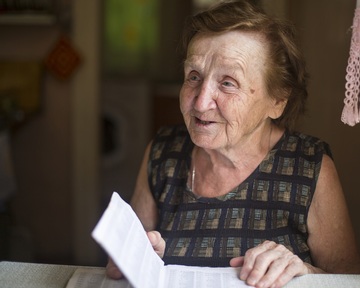Rise in number of people taking part in dementia research
The chance of finding a cure for dementia by 2025 could be increased due to a dramatic rise in the number of people participating in ground-breaking research studies.
Nearly 22,000 people have taken part in dementia research in the past 12 months, which is a 60 per cent rise in previous figures, according to the National Institute for Health Research (NIHR).

The increase in the number of participants in 100 dementia research projects will provide scientists with an increased advantage of finding new treatment to prevent, treat, then eventually cure dementia.
Government minister for Life Sciences, George Freeman, said: “Dementia is a devastating condition that can have a significant impact on the lives of those affected and their families. Volunteers are essential to our battle against the disease and I’m delighted that so many people – with and without dementia – are coming forward to participate in ground-breaking new trials.
“There is still a long way to go but with their help we hope to find a cure or disease modifying therapy by 2025. The race is on.”
More than 850,000 people are affected by dementia in the UK, a figure that is anticipated to rise to more than two million by 2051, more than the entire populations of Birmingham, Liverpool and Manchester.
The increase in the number of participation is predicted to have been as a result of the Prime Minister, David Cameron’s Dementia Challenge in March 2012, where he called on members of the public, charity sectors and private sectors to do more to improve diagnosis, care and research.
Government hopes to encourage 10 per cent of people with dementia to participate in clinical trials by 2020
As a result, Mr Cameron launched the new Dementia2020 Challenge, to make England the ‘best place in the world to undertake research into dementia and other neurodegenerative diseases.’
In March earlier this year, Health Secretary Jeremy Hunt announced the launch of the $100m Dementia Discovery Fund, supported by the Government and different charities and private sector organisations and created to fund dementia research.

Current research projects include testing how effective antibiotics are at slowing cognitive decline, in addition to research into the role of the immune system in people living with dementia, identifying risk factors and improving end of life care.
Director of research and development at Alzheimer’s Society, Dr Doug Brown, commented: “We are delighted that more people affected by dementia are being given the opportunity to take part in vital research. Not only is it essential for us to make progress towards new treatments and better care, but it could also empower people to learn more about their condition and benefit from additional support.”
By participating in research projects, people with dementia have the opportunity to learn more about their condition, and feel they are playing a key part in efforts to find a treatment or cure for the future.
The Government hopes to encourage 10 per cent of people living with dementia to participate in clinical trials by 2020, almost doubling current figures. Nationally 5.5 per cent of people living with dementia took part in research during 2014/15, an increase on previous figures from 2012/13 of 3.7 per cent.
Chris Roberts, 54, from Rhuddlan in North Wales, has been helping researchers with a genetics study into young onset Alzheimer’s at Bangor University. He said: “After a diagnosis of dementia your whole family also receives the diagnosis, it’s a team effort. What we then need is hope and this is what research gives us. Taking part means I’m doing something constructive and worthwhile, I’m leaving something behind that might help others, if not myself. Any kind of research, small or large, brings with it hope that there may be a future.”
'The race is on to find a cure or disease modifying therapy by 2025'
Recently, the amount of charity and Government funding for dementia research has doubled and researchers urgently need more people to help participate in studies.
National director for Dementia Research at the NIHR, Professor Martin Rossor, said: “With the continued focus on dementia research and increasing levels of funding, we expect to need even more people to participate in dementia research over the coming years.
“Traditionally it has been difficult to identify the right people for the right study at the right time, but Join Dementia Research is streamlining this process and we are already seeing the benefits of this boost in volunteers for research. Join Dementia Research makes it much easier for people, wherever they live, to get involved in research and the willingness of the public to help research is vital for us to make the progress that we all hope for.”

Developments in Join Dementia Research have proved crucial in supporting members of the public to take part in dementia research projects. The service is supported by the NIHR Clinical Research Network, working in partnership with Alzheimer’s Research UK, Alzheimer’s Society and Alzheimer Scotland. These key partnerships allow anyone with or without dementia to register their interest in dementia research.
Chief executive of Alzheimer’s Research UK, Hilary Evans, added: “We cannot overstate the importance of volunteers giving up their time to help with research, whether that’s doing a quick online survey or a more intensive programme of assessments. Join Dementia Research is an easy way for people to play their part in defeating dementia, at whatever level of commitment suits them. There’s been a fantastic public response to Join Dementia Research since its launch and it’s heartening to see the UK public coming together to help solve our greatest medical challenge.”
More than 9,000 people are signed up to Join Dementia Research already and more than 50 studies are using the system to recruit study participants, playing an important role in encouraging people to help with dementia research.
There has been an increase in the number of young people signing up to the scheme, while participation by women is three times as high as men. However people over 75 are the most under-represented volunteer in dementia research studies.
Latest News Analysis
 04-Sep-19
Extra £1.5 billion announced for social care in Chancellor's Spending Review
04-Sep-19
Extra £1.5 billion announced for social care in Chancellor's Spending Review
 02-Jul-19
Department of Health forced to rethink care homes' nursing rates after legal challenge
02-Jul-19
Department of Health forced to rethink care homes' nursing rates after legal challenge
 18-Jun-19
Overnight care workers forced to sleep in offices and told 'bring your own bedding'
18-Jun-19
Overnight care workers forced to sleep in offices and told 'bring your own bedding'
 14-Jun-19
Back in the closet: Third of care home staff have had no LGBT+ awareness training
14-Jun-19
Back in the closet: Third of care home staff have had no LGBT+ awareness training
 11-Jun-19
PM candidates on social care: Rory Stewart calls fixing care an 'unfinished revolution'
11-Jun-19
PM candidates on social care: Rory Stewart calls fixing care an 'unfinished revolution'